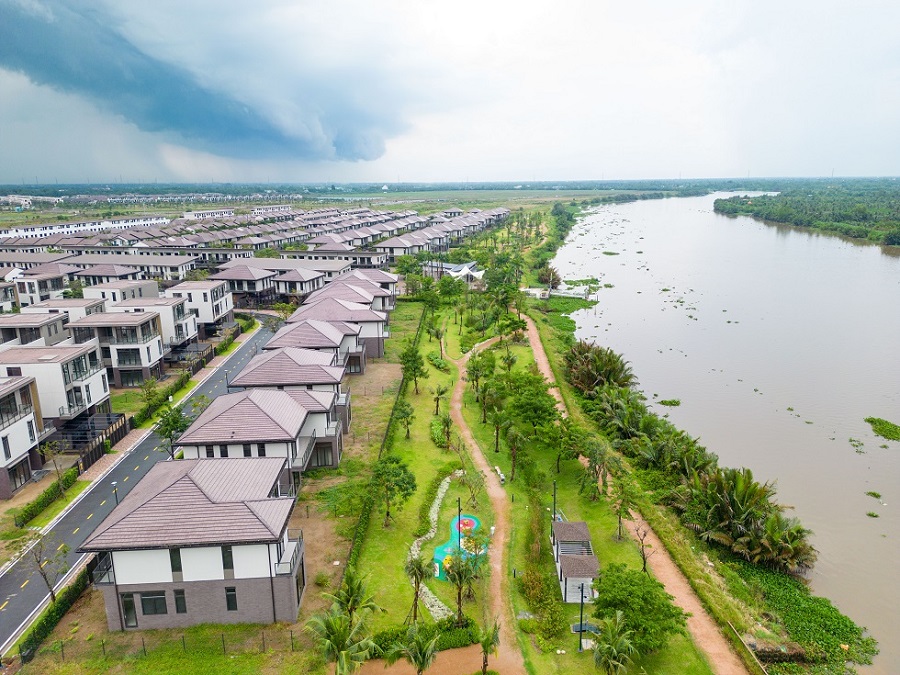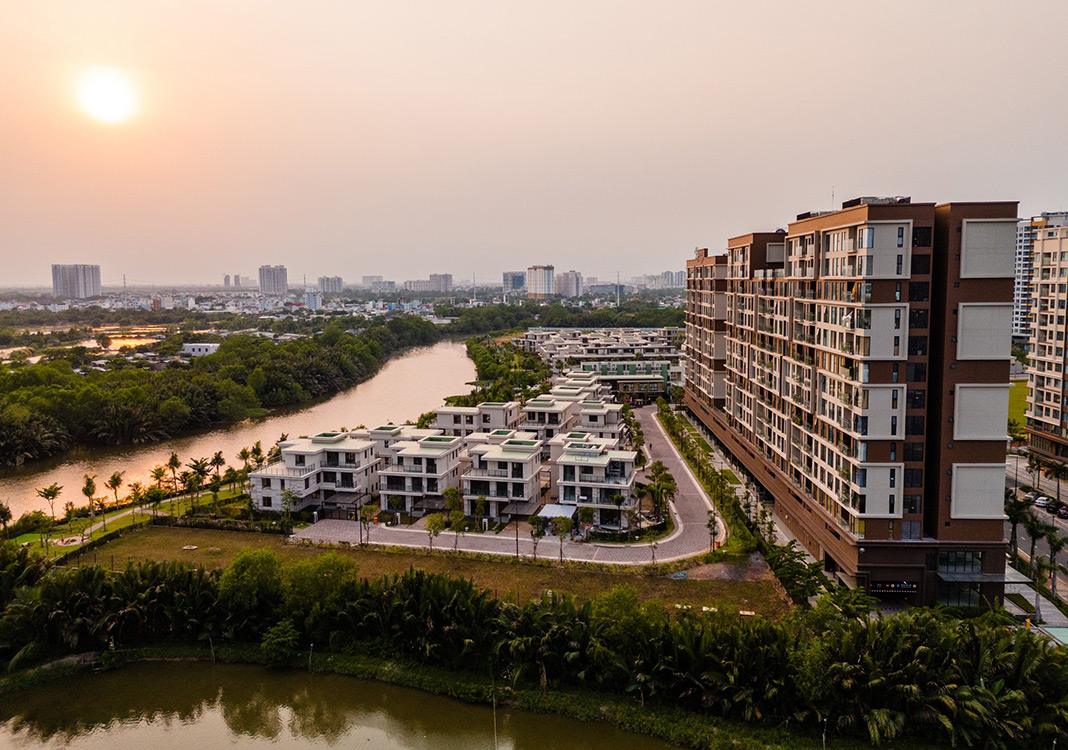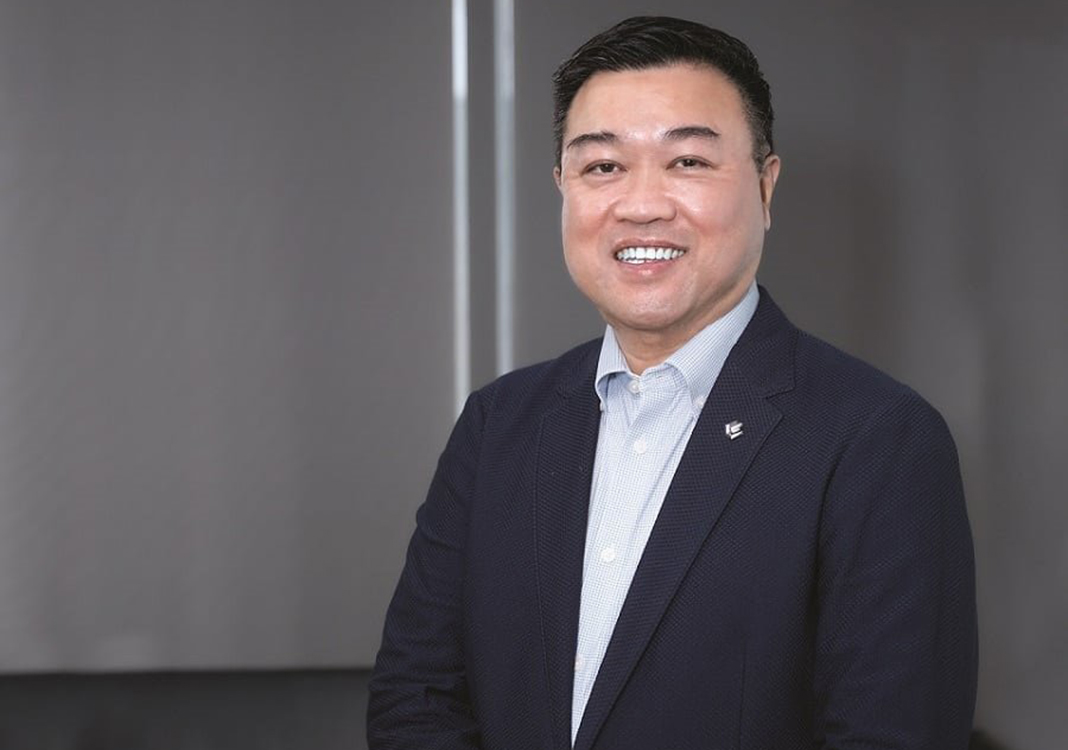With three decades of experience and high-level management expertise at leading Asian real estate companies, Lucas Ignatius Loh Jen Yuh, newly-appointed CEO of Nam Long Group, sees the opportunity to steer the group towards new growth amid market volatility. The CEO, in an interview with The Saigon Times, showed his confidence in the market’s future growth and the company’s vision for development. Excerpts:
‘I see the potential for success based on NLG’s strong foundation.’
The Saigon Times: You have a wealth of real estate experience across many Asian developers. What inspired you to come to Vietnam and take on the CEO role at a well-established company like Nam Long Group (NLG)?
Lucas Ignatius Loh Jen Yuh: I see Vietnam as a growing market, particularly in the real estate sector, which is in its early stages of growth. A key indicator is the urbanization rate in major cities, currently at around 38-40%. This mirrors the urbanization levels observed in China during its real estate boom in the 2000s when I was there.
In Vietnam, the current rapid urbanization translates into a huge demand for housing, commercial spaces like offices and shopping malls, industrial parks, and logistics facilities. As infrastructure development accelerates, cities like Hanoi and HCMC will continue to expand, fueling job creation and further boosting opportunities in the real estate market.
I came here because of NLG’s established reputation, unwavering commitment to adapting to market demands, and ambitious growth plans. These factors combined, plus my shared vision with NLG’s leadership, made this the ideal choice. I see potential for success based on the strong foundation that NLG has built upon over the years.
The Vietnamese property market is facing a downturn in supply, liquidity and transaction volume. Do you feel confident to adapt and guide the company towards a strong recovery?
Undoubtedly, the real estate sector will transition to a more mature phase. The current shortage of supply is a short-term phenomenon. In the mature phase, the market prioritizes quality over quantity, with developers crafting products that genuinely meet market demands for a more balanced supply-demand dynamic. This trend mirrors mature economies like Singapore, the U.S., and China.
As land availability continues to increase, developers will need to compete through the desirability of their offerings. Success will hinge on providing outstanding services, experiences, and a strong brand reputation. Distinctive products and services will differentiate developers from those relying solely on price competition. At NLG, we must focus on crafting a tailored lifestyle for each customer segment we serve.
Beyond strategic thinking, my experience in investment and successful mergers and acquisitions can align well with Nam Long’s future growth plans. These skills will be crucial as we navigate market dynamics.
Despite current difficulties, the Vietnamese real estate market has shown hopeful signs. The legal framework is being solidified given new real estate-related laws recently passed by the National Assembly and set to take effect next year. From your perspective as a seasoned developer, what exciting opportunities do you see emerging on the market?
I think an enhanced legal framework can foster positive long-term market changes, promote transparency, and level the playing field for all.
It is important that firms harness their internal strengths and implement effective governance strategies to adapt swiftly and seamlessly to evolving environments. This agility ensures their survival and prosperity. As for NLG, we are confident in our ability to capitalize on these opportunities.

Corporate heritage is the bedrock of sustainable growth
NLG has maintained a strong emphasis on affordable housing, creating significant value in this market segment. How will this strategy evolve to continue stimulating recovery in the current business landscape?
NLG has established a strong reputation in the market, particularly in the affordable housing segment. This solid foundation provides us with numerous competitive advantages, especially in the current challenging environment.
We plan to expand our current product portfolio. Leveraging our extensive database of affordable housing customers over the years, Nam Long has identified tens of thousands of potential homebuyers for our upcoming projects that will enhance their quality of life. This represents a considerable advantage as the market expands and customer demands evolve.
The upcoming period could mark an era of urban renewal, with numerous projects undergoing upgrades, necessitating a shift in business models for companies. NLG plans to actively seek partnerships in the coming years. We aim to foster collaborations to enhance capital inflows and develop new projects while ensuring that loans remain within manageable limits. This approach will enable us to augment revenue streams through service fees coupled with investment returns from project development.
NLG’s vision is ambitious: to become a leading integrated real estate developer in Vietnam and the wider region by 2030. What core values do you believe will bridge the company’s past successes with its future ambitions?
NLG’s core values of professionalism, integrity, and ownership have been the cornerstones of our success. For years, we have demonstrated a strong governance model powered by highly skilled managers and their proven operational expertise. The commitment to integrity, meanwhile, has earned us the trust of leading Japanese partners, renowned for their meticulousness and transparency, for the past nine years. Let me be clear: as the Vietnamese real estate market matures, only truly professional and competitive property developers will thrive. And NLG remains steadfast in our commitment to these core values.
My role as CEO is to guide NLG toward the future, empowering and aligning our employees to navigate market shifts. This includes adapting our management approaches, refining our business models, and enhancing the quality of our services to better meet the evolving demands of a diverse investor base. While the Covid-19 pandemic and its related challenges prompted a fine-tuning of our 2030 growth strategy, our overall direction remains unchanged. We aim to strengthen our internal system and process and adapt to the market changes.

Building sustainable urban ecosystems is a cornerstone of NLG’s strategy. How do you define “sustainability” within the real estate sector? What do you consider essential criteria for achieving sustainable development in the Vietnamese market?
In essence, sustainability encompasses the ability to endure over time. This concept has eventually extended beyond mere longevity, embracing a business approach that integrates environmental, social, and governance (ESG) considerations. Sustainable development plays a crucial role in the real estate sector.
Sustainability for real estate companies starts from the very beginning, from initial master planning and land acquisition to resettlement procedures, groundbreaking ceremonies, and ultimately, the transformation of the landscape itself. As investor demands change, sustainability becomes less about choice and more about the necessity for any business to survive. Simply put, it is a factor we cannot ignore.
At NLG, sustainability is not just a set of standards by our international partners. Rather, we recognize that our clients, increasingly discerning and environmentally conscious, demand products that embody sustainable practices. By prioritizing sustainability, we not only meet their expectations but also ensure the long-term growth of NLG.









